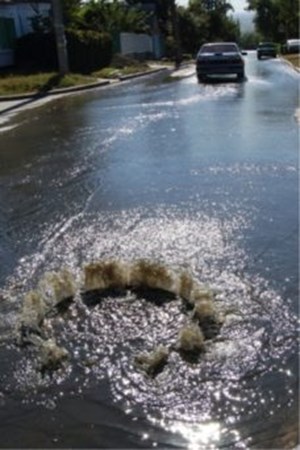Charleston Water System faces lawsuit over “significant” sanitary sewer overflows
(UI) — On Feb 28, the Southern Environmental Law Center (SELC), on behalf of Charleston Waterkeeper, warned Charleston Water System that the groups plan to file a lawsuit unless longstanding sewage overflow problems are addressed. According to SELC, “significant” sewage spills are polluting Charleston’s waterways, violating the federal Clean Water Act.

A sanitary sewer overflow, or “SSO,” occurs when untreated or partially treated sewage discharges from a sewer system into nearby rivers, marshes, streets, and residences. Since 2015, Charleston Water has had at least 176 illegal sewer overflows, many of which spilled raw sewage into Charleston’s waterways including the Ashley and Cooper Rivers and James Island Creek. A significant cause of these overflows was storm events in Charleston. Many of these “wet weather” SSOs happened during routine rain events.
“Charleston Water has known for years that rain and floodwater overload sewage pipes but has failed to fix the problem and protect residents and local waterways,” said Andrew Wunderley, Charleston Waterkeeper. “It is a significant problem and it needs to be fixed now, or it will only get worse as our population grows, sea levels rise, and floods increase.”
One recent rain event in December 2023 overwhelmed Charleston Water’s Plum Island sewage treatment plant and caused three separate SSOs that spilled around 40,000 gallons of raw sewage into roads and waters. These spills can significantly harm the environment and human health, especially water recreators, subsistence fishers, and wastewater workers.
“Sewer overflows are serious health and safety concerns for our communities,” said Emily Wyche, SELC Staff Attorney. “Charleston Water is supposed to protect us from this pollution but has failed to do so for over a decade. It’s time for them to start doing their job.”
Under the Clean Water Act, Charleston Water System has 60 days to remedy the illegal sewer overflows. If the utility refuses, SELC and Charleston Waterkeeper can move forward with a lawsuit in federal court.
Related News
From Archive

- Glenfarne Alaska LNG targets late-2026 construction start for 807-mile pipeline project
- U.S. water reuse boom to fuel $47 billion in infrastructure spending through 2035
- $2.3 billion approved to construct 236-mile Texas-to-Gulf gas pipeline
- Major water pipe break in Puerto Rico hits over 165,000 customers
- Potomac River Tunnel project enters construction phase beneath Washington, D.C.
- Pennsylvania American Water launches interactive map to identify, replace lead water service lines
- Trump's tariffs drive $33 million cost increase for Cincinnati sewer project
- Utah city launches historic $70 million tunnel project using box jacking under active rail line
- Tulsa residents warned after sewer lines damaged by boring work
- Fatal trench collapse halts sewer construction in Massachusetts; two workers hospitalized



Comments